Submitted by North Thurston Public Schools
North Thurston Public Schools (NTPS) partners with many community organizations to offer students enriching science, technology, engineering and mathematics (STEM) opportunities. Outdoor STEM field studies are not guaranteed in every public school setting, but thanks to a busy network of educators, administrators and nonprofit leaders around Thurston County, nearly all NTPS students attend a science-related field study at least once a year pre-kindergarten through high school.
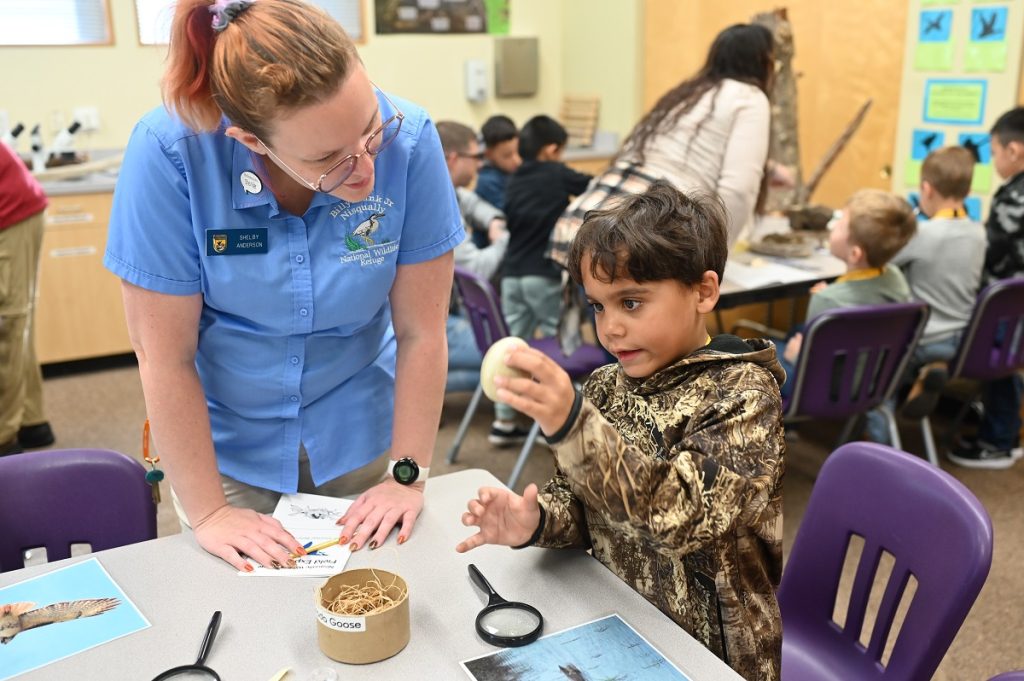
STEM Learning With a Purpose
NTPS has been working with South Sound GREEN (Global Rivers Environmental Education Network) since the mid-1990s. Overseen by the Thurston Conservation District, the program brings water quality education into more than 60 classrooms around Thurston County annually.
“Getting every student in every grade level out to experience a field study is a huge endeavor,” said Stephanie Bishop, the program’s manager. Field study excursions require transporting groups of 30 to 60 students to a location away from the classroom. Sometimes they necessitate special gear, equipment or supplies. Stephanie coordinates funding from grants, local agreements, tax-funding programs and more to remove barriers for as many students as possible.
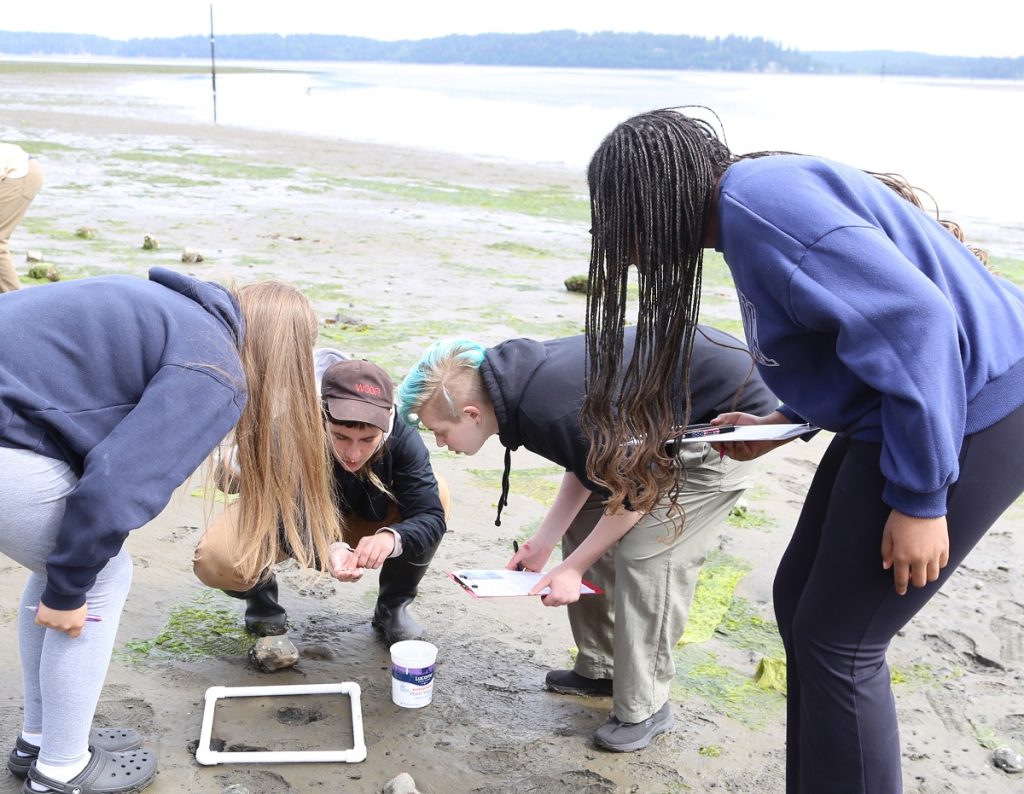
Every student must have access to the same opportunities when it comes to experiencing outdoor learning. “There are so many reasons students might not be able to access outdoor experiences at home,” Stephanie said. “I can’t tell you how many times I’ve been out on a hike and a student says, ‘I’ve always wanted to try this.’ They will probably keep memories of these experiences.” She explained how much value is in grounding an outdoor experience in something scientifically meaningful like water quality or salmon lifespan, and how enriching a classroom experience can be when it’s backed with a field study.
“The data they collect isn’t just going on a worksheet and put into the recycle bin,” Stephanie said. “Water quality data collected by fifth graders is compiled and shared with partners like the City of Olympia, the City of Lacey, Thurston County and local tribes.” Over the years, NTPS students have gathered “red flag” data and reported it to public entities responsible for managing water quality. In some instances, classrooms have taken on projects to improve poor water quality they’ve discovered, such as posting signs and developing awareness campaigns around scooping dog waste at waterfront parks.
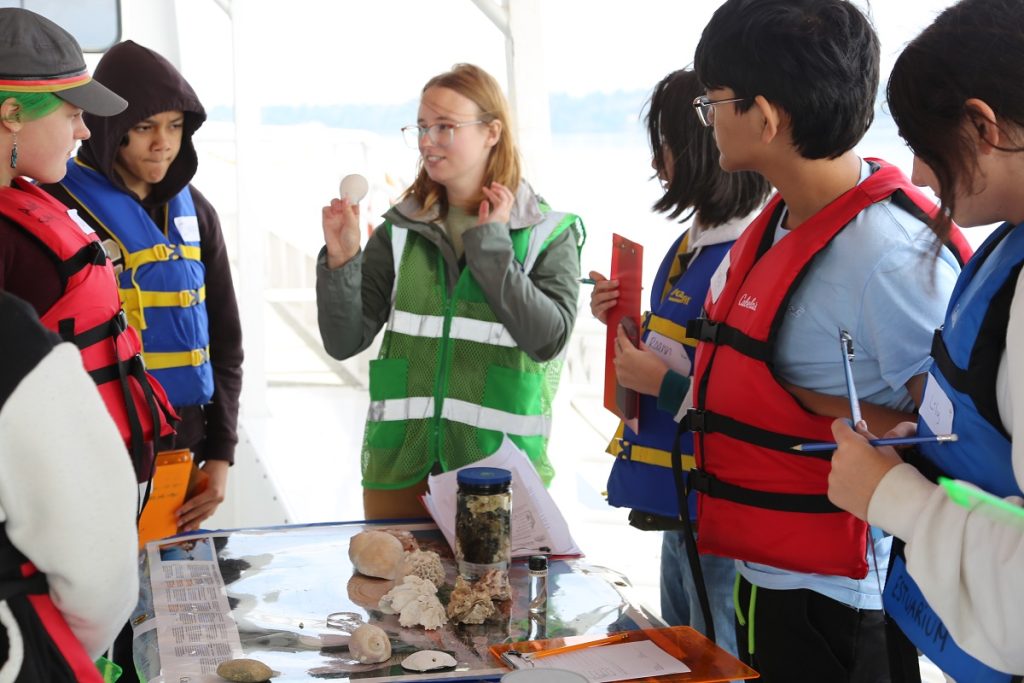
Harnessing the Power of Community
South Sound GREEN is just one of many community partner organizations NTPS engages with to help support the district’s goal of providing field study opportunities for students every year. In the last 10 years, the district has made these efforts more concerted. Jenna Glock and Jana Brock are two of the district’s instructional specialists and they work together to coordinate the funding and logistics of all the field studies. “We are a team in all senses of the word,” Jana said. “These partnerships benefit our students. If we didn’t have our partners, we couldn’t offer these field studies to the extent we are right now.”
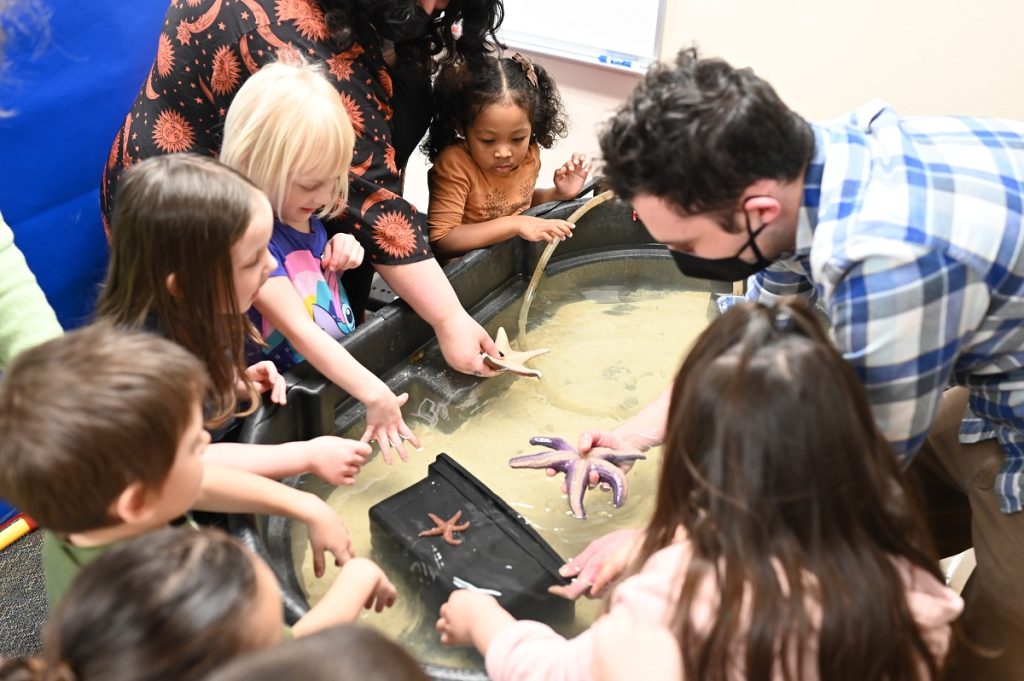
Additional examples of NTPS partnerships include:
- The Puget Sound Estuarium facilitates tidepool touch tank field experiences for pre-K students and boat outings for high school chemistry, biology, and career & technical education (CTE) students.
- Pacific Shellfish Institute leads high school and middle schoolers in plankton identification, collection, and study.
- In cooperation with the Nisqually Indian Tribe, the Nisqually River Education Project coordinates field studies at the Nisqually Tribal Center, connecting students to local indigenous cultural roots and the importance of conservation and stewardship of the watershed and its resident species, such as salmon.
- South Sound GREEN works with high school biology students to investigate biodiversity, water quality, and plankton impacts at Squaxin, Tolmie, and Meyers Points parks.
Many more environmentally focused organizations and local government agencies are involved with and supportive of these efforts.
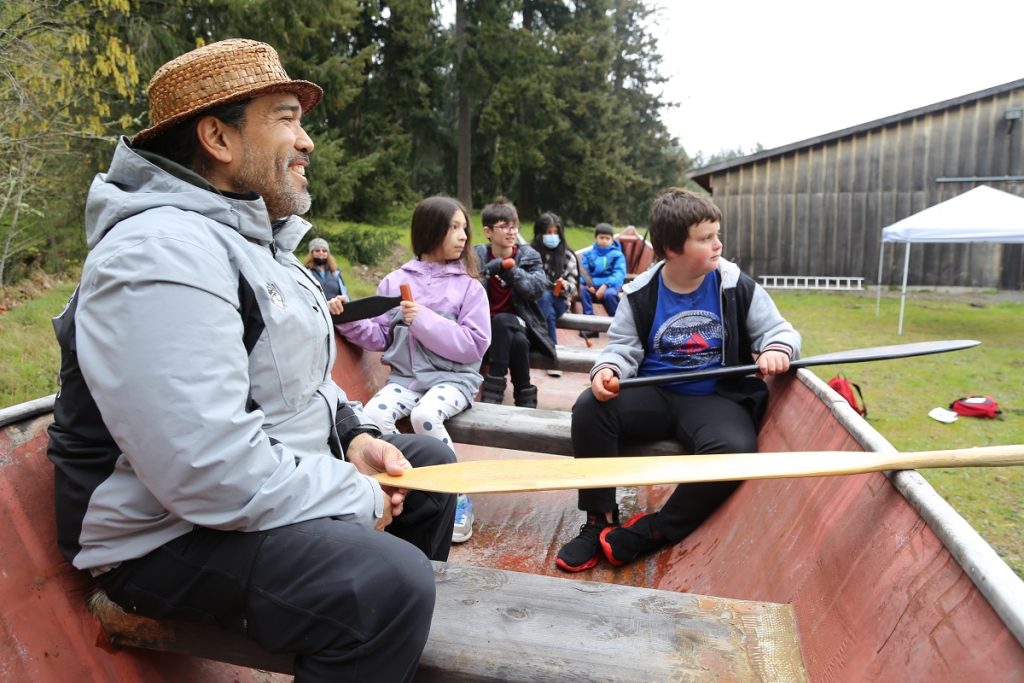
Why Outdoor Science Field Studies Matter
Ensuring outdoor learning experiences in the form of field studies aligns with the third goal of NTPS’s strategic plan. It increases the percentage of students participating in a community-based activity, engaging in solving relevant challenges within the community, and solving real-world, interdisciplinary problems. Field studies also help young learners make strong memories connected to the natural world and can even inspire careers.
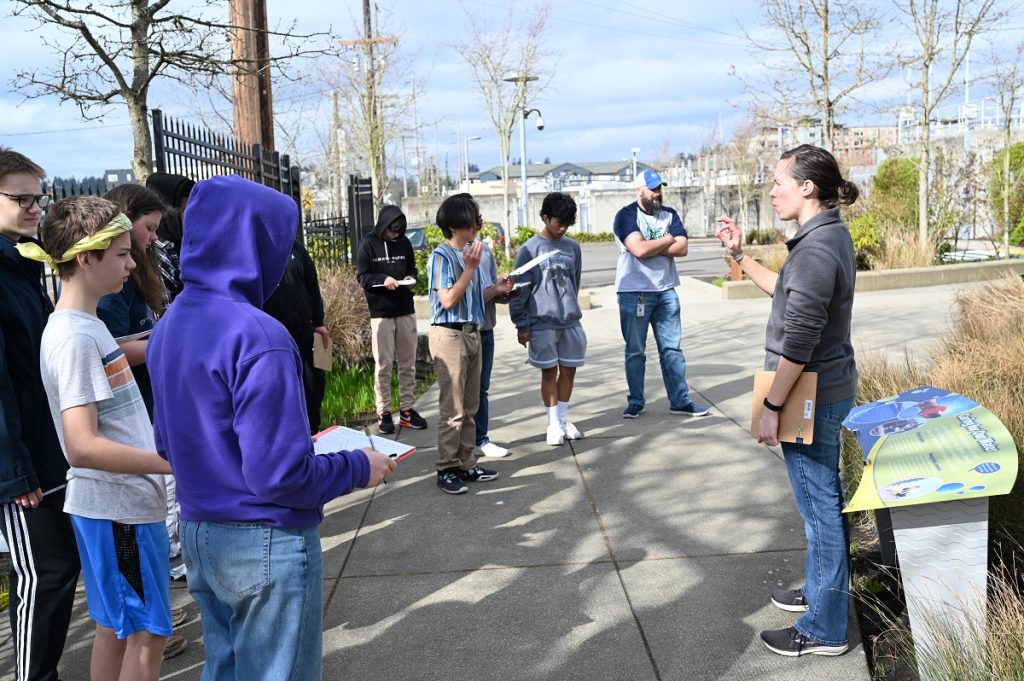
When Ashley Mucino was at Pleasant Glade Elementary School in the early 2000s, she went on a field study with her fifth-grade class. She remembers learning about water quality and seeing an impressive number of salmon. She now has a fifth grader at Pleasant Glade and had the chance to be a parent chaperone on his classroom’s water quality testing field study at Woodard Creek. “To a kid, it might seem like a small thing to keep water clean, but this experience gives them context to be aware of how small things affect the bigger picture,” she said. “Clean water is a privilege for us and preserving the earth will be done through future generations. Educational experiences like these change outcomes and empower people.”
NTPS students are fortunate to live in such a beautiful region and be supported by a network of adults passionate about connecting their education to science in the great outdoors. If you are interested in supporting these efforts, consider volunteering with South Sound GREEN or another community partner, such as Capitol Land Trust, the WET Science Center, Stream Team, Pacific Shellfish Institute, or the Puget Sound Estuarium.
Sponsored
















































